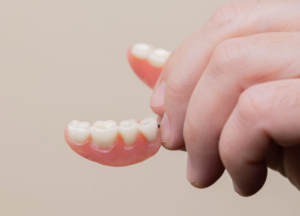At Paschke Dental Group, we know that maintaining a healthy smile is about more than brushing and flossing. Nutrition plays a significant role in oral health, affecting everything from the strength of your teeth to the health of your gums. A balanced diet is crucial for preventing cavities, gum disease, and other dental issues. As a trusted dentist in Venice, FL, we are committed to educating our patients on how to achieve optimal dental health through mindful eating habits and balanced nutrition. In this blog, we’ll explore the connection between nutrition and dental health, discuss the best foods for your teeth, and offer practical advice on dietary choices that promote strong, healthy smiles.
How Nutrition Affects Dental Health
What you eat has a direct impact on the health of your teeth and gums. When you consume sugary, starchy, or acidic foods, the bacteria in your mouth feed on these substances and produce acids. These acids can erode tooth enamel, leading to cavities and, over time, to more serious oral health issues. Additionally, a lack of essential nutrients can weaken the immune system, making it harder for your body to fight off infections like gum disease.
On the other hand, a nutrient-rich diet strengthens teeth and gums, helps repair tissues, and supports overall dental health. Incorporating the right foods into your daily routine can create a protective barrier against tooth decay and gum disease while promoting fresh breath and a brighter smile.
Nutrients Essential for Dental Health
Just as your body needs certain nutrients to function optimally, so do your teeth and gums. Below are some of the key nutrients that play a vital role in maintaining strong and healthy teeth:
1. Calcium
Calcium is essential for building and maintaining strong bones and teeth. It helps harden tooth enamel, making it more resistant to decay. Additionally, calcium supports jawbone density, which is crucial for keeping teeth stable and securely in place.
– Sources: Dairy products like milk, cheese, and yogurt are rich in calcium. If you’re lactose intolerant, consider alternatives like fortified plant-based milks (almond, soy, or oat milk) or calcium-fortified juices. Leafy green vegetables like kale and broccoli also contain significant amounts of calcium.
2. Vitamin D
Vitamin D plays an important role in calcium absorption. Without sufficient vitamin D, your body cannot effectively absorb calcium, regardless of how much you consume. This nutrient is essential for maintaining strong teeth and bones and can also reduce the risk of gum disease by supporting the immune system.
– Sources: Sunlight is one of the best sources of vitamin D, but you can also obtain it from fatty fish (like salmon and tuna), egg yolks, and fortified foods such as milk and cereals.
3. Phosphorus
Phosphorus works in conjunction with calcium to build strong teeth and bones. This mineral is stored in the teeth and bones, contributing to their structure and strength.
– Sources: You can find phosphorus in foods such as meat, poultry, fish, eggs, dairy products, nuts, and beans.
4. Vitamin C
Vitamin C is essential for gum health. It helps maintain the connective tissues in your gums, supporting overall gum structure and protecting against periodontal disease. A deficiency in vitamin C can lead to swollen, bleeding gums and an increased risk of gum infections.
– Sources: Citrus fruits like oranges, lemons, and grapefruits are excellent sources of vitamin C. Other good sources include strawberries, bell peppers, broccoli, and kiwi.
5. Vitamin A
Vitamin A supports saliva production, which is essential for washing away bacteria and food particles in the mouth. It also aids in the maintenance of mucous membranes, helping keep gums healthy and preventing dry mouth.
– Sources: Sweet potatoes, carrots, leafy greens, and eggs are all rich in vitamin A.
6. Magnesium
Magnesium is essential for proper calcium absorption and is a key component of tooth enamel. A deficiency in magnesium can make teeth more susceptible to decay and damage.
– Sources: Dark leafy greens, nuts, seeds, whole grains, and avocados are all rich in magnesium.
Foods That Benefit Dental Health
Incorporating nutrient-dense foods into your diet can help keep your teeth and gums healthy. Here are some of the best foods to include in your diet:
Dairy Products
Dairy products like cheese, milk, and yogurt are rich in calcium and phosphates, which help strengthen tooth enamel and bones. Cheese, in particular, helps neutralize acids in the mouth, reducing the risk of enamel erosion.
Leafy Greens
Leafy greens such as kale, spinach, and collard greens are packed with vitamins and minerals, including calcium, vitamin C, and folic acid. They help strengthen teeth, support gum health, and stimulate saliva production, which can naturally clean the teeth.
Crunchy Fruits and Vegetables
Crunchy fruits and vegetables, like apples, carrots, and celery, act as natural toothbrushes. Their fibrous textures scrub the teeth and stimulate the gums, which helps remove plaque and food particles. Apples, sometimes called “nature’s toothbrush,” are particularly beneficial because they increase saliva production, helping to rinse away bacteria.
Nuts and Seeds
Nuts and seeds provide a range of nutrients, including calcium, magnesium, and phosphorus, which help strengthen teeth. Additionally, the chewing required for nuts can stimulate saliva production, reducing the risk of cavities.
Green and Black Teas
Green and black teas contain polyphenols, compounds that help reduce the growth of bacteria in the mouth and prevent plaque formation. These teas can also improve breath freshness and protect against cavities. Just be mindful of their potential to stain teeth over time.
Foods to Limit or Avoid for Dental Health
While some foods are great for dental health, others can be harmful. Here are some foods to limit to keep your teeth in the best shape possible:
Sugary Foods and Drinks
Sugary foods and beverages provide food for harmful bacteria in the mouth, which produce acids that erode tooth enamel. Try to limit your intake of candy, soda, and other sugary items, and if you do consume them, rinse your mouth with water or brush your teeth afterward.
Acidic Foods and Drinks
Acidic foods and beverages, such as citrus fruits, vinegar-based dressings, soda, and wine, can weaken enamel over time. While some acidic foods, like citrus fruits, are also rich in vitamin C, it’s best to consume them in moderation and rinse your mouth afterward to reduce acid exposure.
Starchy Foods
Starchy foods like bread, pasta, and chips can break down into sugars in the mouth and become trapped between teeth, leading to plaque buildup and decay. Choose whole grains over refined starches when possible, as they contain more fiber and break down more slowly.
Sticky and Hard Candies
Sticky candies cling to the teeth, increasing the risk of decay, while hard candies can cause fractures or cracks in teeth. If you’re craving something sweet, try sugar-free gum, which can help stimulate saliva production without contributing to tooth decay.
Practical Tips for Dental-Healthy Eating
To incorporate dental-friendly foods into your daily routine, follow these practical tips:
1. Drink Water Frequently: Water helps rinse away food particles and bacteria, keeping your mouth cleaner between meals. Fluoridated water also helps protect enamel.
2. Eat a Balanced Diet: Include a variety of nutrient-rich foods to support overall dental and physical health. Aim for a balanced diet with plenty of fruits, vegetables, lean proteins, and whole grains.
3. Limit Snacking: Frequent snacking can increase acid production in the mouth. Instead, try to eat meals at set times and reduce the number of snacks you consume throughout the day.
4. End Meals with Dairy: If possible, end meals with a piece of cheese or a sip of milk to neutralize acids in the mouth.
5. Rinse or Brush After Acidic Foods: Rinsing your mouth or waiting 30 minutes before brushing after consuming acidic foods can help prevent enamel erosion.
How Paschke Dental Group Supports Your Nutrition and Dental Health
At Paschke Dental Group, we’re committed to helping our patients achieve optimal dental health through education, prevention, and personalized care. As a top dentist in Venice, FL, we understand the importance of nutrition in maintaining strong, healthy teeth. We work closely with our patients to provide dietary advice, preventive care, and treatments that support both oral and overall health.
Our team is here to offer guidance on the best foods for dental health, help you understand how your diet affects your teeth, and provide strategies for healthier eating. We also offer fluoride treatments, sealants, and other preventive services to strengthen teeth and protect against decay.
If you’re interested in learning more about how nutrition impacts dental health, or if you’d like to schedule a check-up with a dentist in Venice, FL, please visit PaschkeDental.com or call our office today. We’re here to help you build a healthy foundation for a lifetime of smiles.








